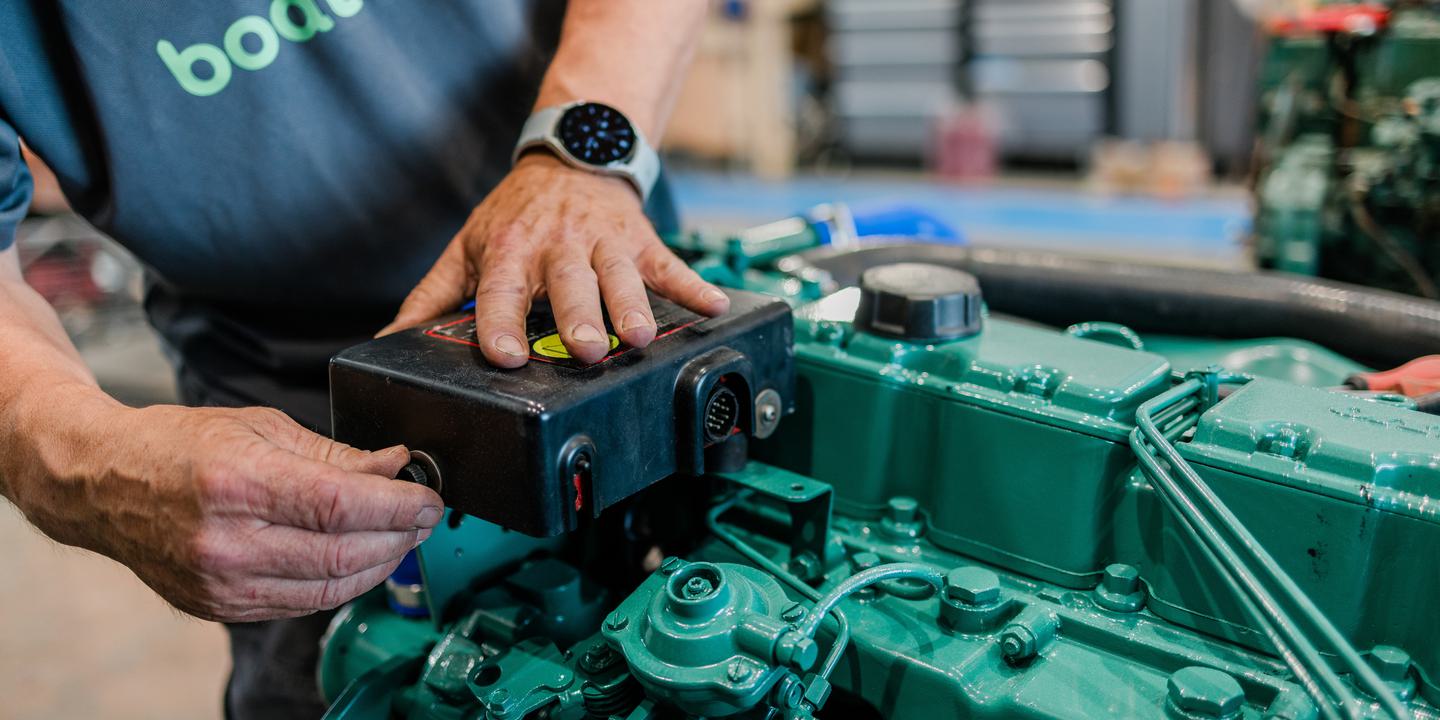
Keep your engine at its best
Marine Engine health checks
Feb 12, 2025
When it comes to looking after your boat there are several areas which should be on your checklist to keep your boat in the best condition. Regular service and health checks are crucial for maintaining the optimal performance and longevity of marine engines.
Health checks for your engine
These components are subjected to harsh marine environments including salt water, vibration and temperature fluctuations. By conducting thorough inspections and timely maintenance, boat owners can prevent costly breakdowns, ensure safety and enjoy a smooth boating experience.
Marine engines, whether inboard or outboard, require regular attention to maintain peak performance and reliability. Here are the key areas the expert boatcare team recommend:
Oil and filter inspection:
- Oil Level: Ensure the engine oil level is within the recommended range. Low oil levels can lead to engine damage.
- Oils & Filters: Check the oil for signs of contamination, such as water. Replace the oil & filters as recommended by the manufacturer.
Cooling System:
- Coolant Level: Verify that the coolant level is sufficient. Low coolant levels can cause overheating.
- Coolant Condition: Check the coolant for signs of contamination or corrosion. Replace the coolant as needed. If coolant is contaminated, flush the necessary system with an applicable descaling agent and renew all coolant.
- Raw Water & Circulation pumps: Inspect the water pump impeller for wear and damage. Replace the impeller as necessary. Inspect circulation pumps for signs of leaking
- Pulleys, Belts and Hoses: Pulleys inspect for alignment and bearing wear. If pulleys are corroding, they should be prepared, primed and painted to avoid belt wear and dust. Inspect belts and hoses for wear, cracks, or leaks.
Fuel System:
- Fuel Filters: Check and replace fuel filters to remove contaminants.
- Fuel Lines: Inspect fuel lines for cracks, leaks, or signs of deterioration.
- Fuel Tank: Ensure the fuel tank is clean and free of water and sediment.
- Fuel Injectors: Have fuel injectors tested and adjusted as needed to ensure proper fuel delivery.
Electrical System:
- Batteries: Check battery voltages and charge level. Ensure batteries are isolated when not in use. Only charge as required.
- Alternator: Verify the alternator is charging the battery.
Exhaust System:
- Exhaust Manifold/Elbows: Inspect the exhaust manifold for cracks or leaks. Remove manifolds and elbows on a regular basis to inspect for water ingress or blockages.
- Exhaust Risers: Check the exhaust risers for corrosion and blockage.
Stern Gear Assemblies
The stern assembly, including the propeller, shaft, p-bracket & bearings, sterndrives, lower leg units are crucial for efficient propulsion. Regular inspections are essential to identify and address potential issues:
Engine Alignment & Seals
- Shaft Alignment: Ensure the engine and propeller shaft are properly aligned to prevent excessive vibration and wear. Worn cutlass bearings should be replaced. Gland packing assemblies should regularly be repacked and greased as required. Deep water seals should be adjusted and or replaced as per manufacturer’s instructions. Many deep-water seals need to be ‘burped’ prior to use.
Propeller
- Propeller Condition: Inspect the propeller for damage, corrosion, blade damage. Folding propellor assemblies should be checked for wear and greased annually along with replacing anodes.
- Propeller Nut Ensure the propeller nut is tight and secure. Some nuts need to be replaced after a single use, check with the manufacturer.
Stern Drive
- Bellows Inspect the bellows for signs of wear, tears, or leaks. Replace as per manufacturers guidelines.
- Gimbal Bearing Check the gimbal bearing for proper lubrication and signs of bearing failure..
- Drive Shaft Inspect the drive shaft for corrosion, ensure shaft and universal joints are rust free greased and seals replaced.
Need a helping hand?
Certain engine checks are relatively straightforward to carry out yourself, however if you suspect there is a bigger problem at hand or you simply don't have the time why not get in touch with your local boatcare crew?